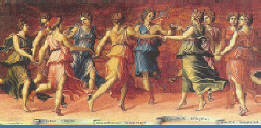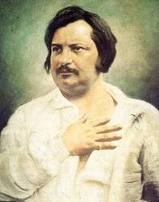|
|
Balzac was born in 1799 at Tours and named after the saint's day of his birth. His father was
named Balssa and was not entitled to the honorific 'de' which Balzac added to his name without
authority in 1830.
After the revolution, the father rose from modest origins to become a member of the army
commissariat and hospital departments. He intended his son for a legal career after early schooling
at Tours and later at the Collège de Vendôme. At the age of approx. 18, Balzac accordingly
commenced a career as a clerk to a notary and solicitor in the offices of M. Guillonnet-Merville
upon completing legal tuition at the Sorbonne from 1816. He rebelled at the chosen profession,
however, and removed to Paris on a meagre allowance being compelled to turn to literature for
survival. He incurred debts in a publishing venture which he struggled for many years to repay.
His good nature throughout his life assisted his acquaintance with numerous literary figures,
including Victor Hugo, as well as several influential ladies of whom Countess Evelina Hanska proved,
from 1833, the most supportive. For over 20 years, he wrote incessantly and created an enormous
output in a mainly nocturnal work schedule. He wrote numerous novels and plays but was always
on the brink of survival incurring new debts in order to repay old debts.
He travelled within Europe not only in order to visit acquaintances but also in vain attempts to acquire
income from new business ventures whilst still writing habitually mainly at his villa in Sèvres.
He finally married the by then widowed Countess Hanska in 1850 but died only a few months later
with his health weakened by strain of work and debt and by the Ukrainian winter when visiting
the Countess.
Balzac is the most prolific of French authors of his epoch and proved greatly influential upon his
contemporaries and successors. He wrote several plays to no great acclaim and is primarily
celebrated as a novelist. His poetry is confined to works to be found within those novels.
|

